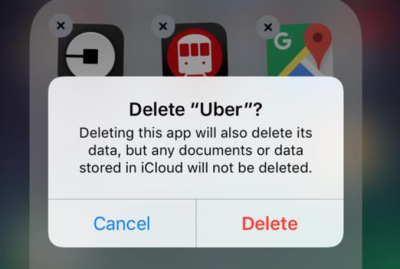Part 2 in a (so far) two-part series on Marketing And The Culture Wars.
Do you ride with Uber or with Lyft? Do you shop at Nordstrom? How about T.J. Maxx or Neiman Marcus? Will you serve your family food from Wegman’s? Or have lunch at Chick-fil-A? Do you exercise in Under Armour or Nike? Your choice could mark you, at least in some peoples’ eyes, as an America-hating Trotskyite or a deplorable, gun-loving xenophobe.
While the politicization of every single aspect of our lives may be annoying or even amusing to regular folks, it’s a minefield for marketers. In most of the aforementioned cases, a political position has been thrust onto those brands. They didn’t get to choose their side.
Atlanta-based fast feeder Chick-fil-A has always leaned right, and it’s occasionally gotten them into hot water (nevertheless, Chick-fil-A recently passed KFC as America’s #1 chicken chain). But what about Wegman’s, a Northeast regional supermarket with the highest customer-satisfaction numbers in the industry and revenues to match? They’re catching heat from liberal shoppers because they sell Trump-branded wine (they’ve been carrying it for nine years).
Ditto Uber, which got crosswise with the same kind of consumers when they lowered prices in response to a strike by The New York Taxi Workers Alliance. The taxi drivers joined a protest at JFK airport against President Trump’s immigration order and Uber executives saw an opportunity for a win-win. More people would ride Uber to JFK at a reduced cost. But left-leaning citizens immediately launched #DeleteUber, a social media outcry calling for people to purge the offending brand’s app from their smartphones.

“Out, damned right wing, fascist hate app!”
Lyft execs, no doubt sensing the direction of the political winds, racked up righteousness points by announcing, via an email to all of their customers, that the company would donate $1 million to the American Civil Liberties Union.
We don’t have a dog in this fight (unless somebody makes us).
Marketers have historically tried to keep their brands politically neutral. It wasn’t too difficult. Until recently, it would’ve been hard to assign a particular political position to a can of soda, a credit card or a smartphone app. But, given our current political climate, that’s changing fast.
Marketers don’t talk about it out loud, but traditionally, if your brand was forced to pick a side on a cultural, social or political issue, it was usually safer to err toward the progressive side. You don’t need to convince conservative consumers that American business is a force for good in the world. But if you’re, say, a Big Oil Brand, you might want to convince liberal-leaning consumers that you’re not utterly evil by pointing out how you’re investing billions erecting windmills, turning pond scum into fuel and combating malaria.
All that is true, and big oil brands make sure we hear about it. Professional activists wail about greenwashing and virtue signaling, but there aren’t enough of them to make much difference to brands with broad audiences. Even if it were just a matter of optics (and it’s not – big oil companies invest huge amounts in renewable and alternative energy), big brands like Shell, Hewlett Packard, Citibank and GM would still have a strong incentive to engage in liberal rather than conservative activism.
It’s what you might call asymmetrical righteousness.
Conservatives may smirk and roll their eyes when a big oil brand promises to build windmills and reduce pollution, but a fair number of progressives believe that our continued use of fossil fuel is dooming civilization. America’s Chevy Suburban drivers are not going to storm Chevron’s headquarters if it invests a few billion bucks in making gasoline from soybeans. But America’s Subaru drivers might very well do so if it doesn’t.

“Next stop Houston, boys. We’ll teach those craven pantywaists from Exxon to mess around with alternative fuels!”
The same kind of asymmetry happens in social issues, too. Progressives drove the CEO of Mozilla, Brendan Eich, out of his job for donating $1,000 to an organization that opposes gay marriage. But conservatives will never try to hound Tim Cook out of Apple for supporting the same issue. For the Right, gay marriage is a moral and political controversy. For the Left, excluding homosexual couples from the institution of marriage isn’t just wrong, it’s deliberately evil.
All of a sudden, left isn’t always right.
So, it’s always made sense for marketers, when forced, to lean slightly to the left. At least until recently. In my last blog post I wrote about the conservative group, One Million Moms, who works to drive content it views as family-unfriendly from television. One campaign encouraged consumers not to buy Nature Made vitamins until the brand stopped sponsoring the “deviant and anti-Christian” show Teachers. Who knows how the people who run Nature Made actually feel about the issue? Nobody. But they pulled their ads, thereby tacitly affirming that the Right is right.

“Take that, you lefty-coddling wussy retailer. See if I ever buy another St. John suit from you!”
In response to then-candidate Donald Trump’s infamous remarks about grabbing women, a pair of women who describe themselves as “a brand strategist and a grandmother” launched #GrabYourWallet. It’s a social media movement that encourages people to boycott retailers who do business with the Trumps.
Perhaps in response to #GYW’s efforts, Nordstrom, Neiman Marcus and T.J. Maxx have all removed Trump-branded merchandise from their shelves. When in doubt, lean left. Right?
Not so fast.
A crusade that seems to have sprung from Washington, DC’s affluent Northern Virginia suburbs is mobilizing conservative women to march into high end department stores and present the managers with shredded store credit cards. The reason? Said Mary Carson of Vienna, Virginia to a Nordstrom manager – a retailer who had removed the Ivanka Trump line of shoes from their stores, reportedly due to poor sales, prior to the inauguration – “You all really are the best store in the area. It’s a shame you couldn’t keep your mouths shut about our president.”
Consumers aren’t just expressing their vexation by boycotting particular brands. There’s a lot of “protest purchasing” going on, too. It turns out that all that detestable Trump wine has been flying out of Wegman’s. And, as of today, Ivanka Trump’s perfume is the fastest selling fragrance brand on Amazon.
Marketers can try to stay apart from the political, social and cultural rumpus and hope that it blows over soon. But the smart ones will have plans in place to deal with the seemingly random events that can force a brand to pick a side. Famed advertising man Bill Bernbach is said to have said, “A principle isn’t a principle until it costs you money.”
To which a lot of marketing directors might reply, “A principle isn’t a principle if I didn’t pick it.”
Linkography
- My previous blog post on Marketing and The Culture Wars
- Wegman’s and Trump Winery – Fortune
- Chick-fil-A and same-sex marriage – Forbes.com
- Under Armour and Jordan Spieth – The Washington Post
- Nike “Equality” campaign – Adweek
- NYC taxis and #DeleteUber – The New York Times
- One Million Moms
- Teachers TV show on TV Land – IMDB
- Grab Your Wallet
- “Keep your mouth shut about our president” – The Washington Post
- Nordstrom, Neiman Marcus and Ivanka Trump – Vanity Fair
